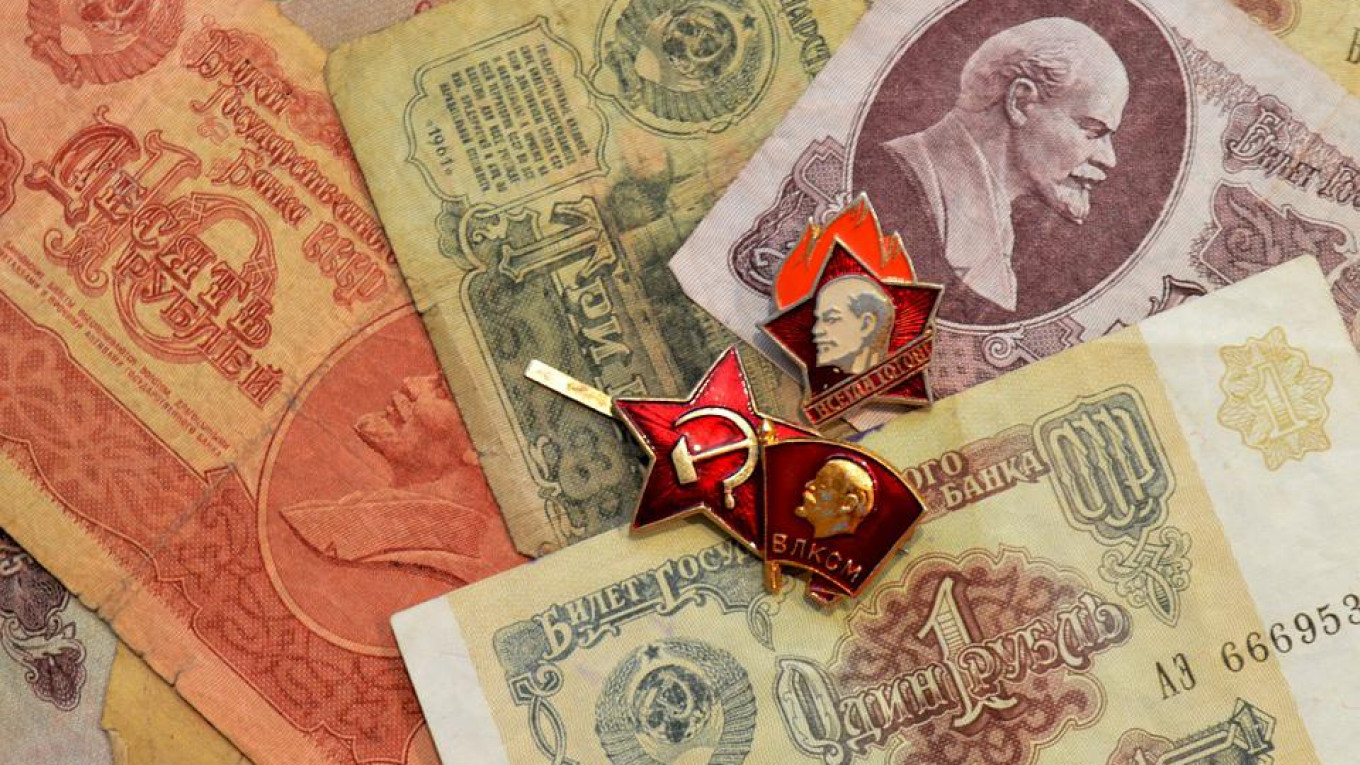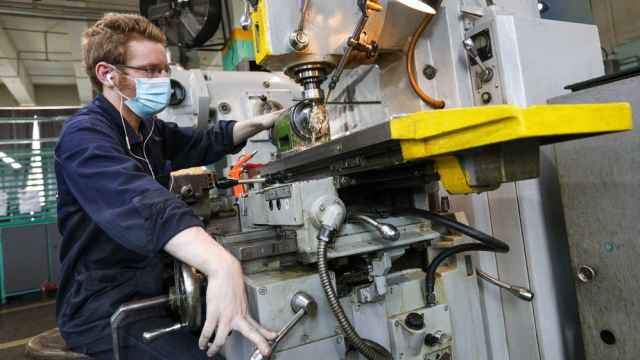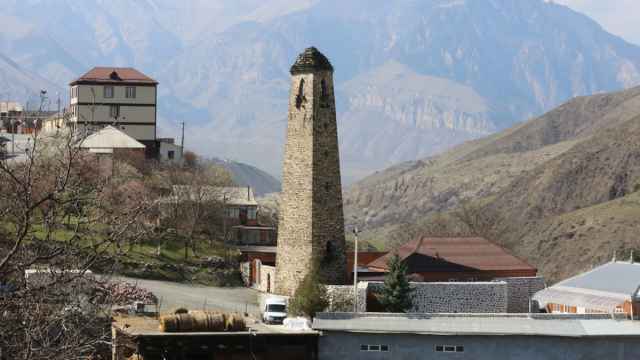When Soviet leaders, engineers and architects built infrastructure and cities, the last thing on their minds was the price of land or the idea of private property.
In fact, the whole idea of the Soviet state was to eliminate such things altogether.
The ostensible plan was to build factories, cities and roads to provide for the needs of the working people, without spending any resources on owners’ profits or any thought to the price of land.
However, in practice — and especially until the mid-1950s — the authorities sought to meet the needs, not of the people, but of the party and state. They directed all their actions at retaining power in the hands of a single party and protecting the state from all threats, both real and imagined.
Western specialists designed Soviet-era industrial enterprises as they would their own – to function within a competitive economy. However, with a few notable exceptions, those plants were never meant to be competitive.
Instead, they were integrated into the larger Soviet production chain that itself competed with the capitalist system in the West. Cities were built up around these factories so that people did not sit idle, were under constant supervision and did not use up too many of resources.
The government needed those resources to catch up with developed countries in the production of items they deemed strategically important such as coal, steel, tanks, and rockets.
As result, the Soviet state did in fact manage to surpass capitalist countries with regards to several quantitative indicators.
That is why the common people lived in barracks and mud huts while their leaders, those with knowledge and power, lived in unattainable mansions.
It was not until after the 1950s that citizens finally moved into hastily constructed neighborhoods of concrete panel apartment blocks. The number of such panel housing far surpassed that in any other country. Just as the Soviet Union had been “better” than its Western rivals in the production of tanks, it outdid them with cookie-cutter housing.
Once humanitarian considerations began slightly outweighing defense concerns, the authorities started looking at cities and roads as the optimal setting for the Soviet individual.
That individual now had a place in the multi-level hierarchy: at the factory, at university, the home, in neighborhoods with their nursery schools. Higher up stood the district with its medical facilities, police and cinemas. Then came the city with its administration and theaters, then the republic with its authorities. And, finally, the country with the Kremlin as its center of power. According to the plan, the Soviet citizen was supposed to function and find happiness within that matrix of store, laundry mat, doctor’s office, theater, and watching their leaders on television.
What this thoroughly considered social pyramid did not envision was the sudden onset of capitalism.
Everything surrounding the Soviet citizen was constructed with a specific purpose in mind, but those objectives never included profit making and the accumulation of private wealth.
And yet it is precisely those motives – once rejected by the Soviet Union – that now drive the ruling elite.
This is in part because the higher up a person is in the pyramid, the greater his potential to profit from that position.
Capable managers exploited the methods left over from socialism and built a capitalist system for themselves.
Ordinary citizens were placed in the role of consumers with no right to choose the supplier. Meanwhile, that “supplier” sold them resources and services that were not originally intended for sale.
The result is a business that profits from people, who find themselves in the same pyramid, and same panel houses, only now for money.
Everything has become a business: utilities, the number of parking spaces (of which there are few), the paperwork (of which there is a lot), health care and education, which are unreliable and often inferior. This is a life of few options in a country that lives off exporting resources that were given by nature and discovered and charted by Soviet-era geologists.
The harshness of today’s unjust capitalism is commensurate with the harshness of the unjust socialism that preceded it.
To heal this deep trauma that dictates the entire system of relations in the country, Russia will need an entirely new type of politics.
Has any other country made a similar shift from Soviet socialism to corrupt state capitalism? Even in China, the private sector is expanding, not shrinking as it is here.
It will require giving people the opportunity to live in their own houses, rather than within narrow, identical panel houses.
It means giving citizens the ability to earn enough to follow their own life plan and become masters of their own country.
Maxim Trudolyubov is a senior fellow with the Kennan Institute. This article was originally published in Vedomosti.
The views and opinions expressed in opinion pieces do not necessarily reflect the position of The Moscow Times.
A Message from The Moscow Times:
Dear readers,
We are facing unprecedented challenges. Russia's Prosecutor General's Office has designated The Moscow Times as an "undesirable" organization, criminalizing our work and putting our staff at risk of prosecution. This follows our earlier unjust labeling as a "foreign agent."
These actions are direct attempts to silence independent journalism in Russia. The authorities claim our work "discredits the decisions of the Russian leadership." We see things differently: we strive to provide accurate, unbiased reporting on Russia.
We, the journalists of The Moscow Times, refuse to be silenced. But to continue our work, we need your help.
Your support, no matter how small, makes a world of difference. If you can, please support us monthly starting from just $2. It's quick to set up, and every contribution makes a significant impact.
By supporting The Moscow Times, you're defending open, independent journalism in the face of repression. Thank you for standing with us.
Remind me later.








